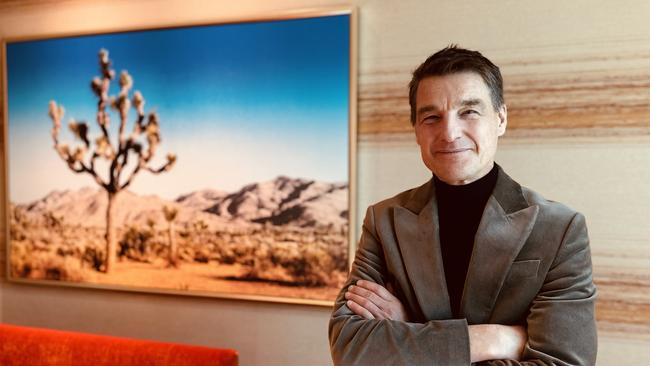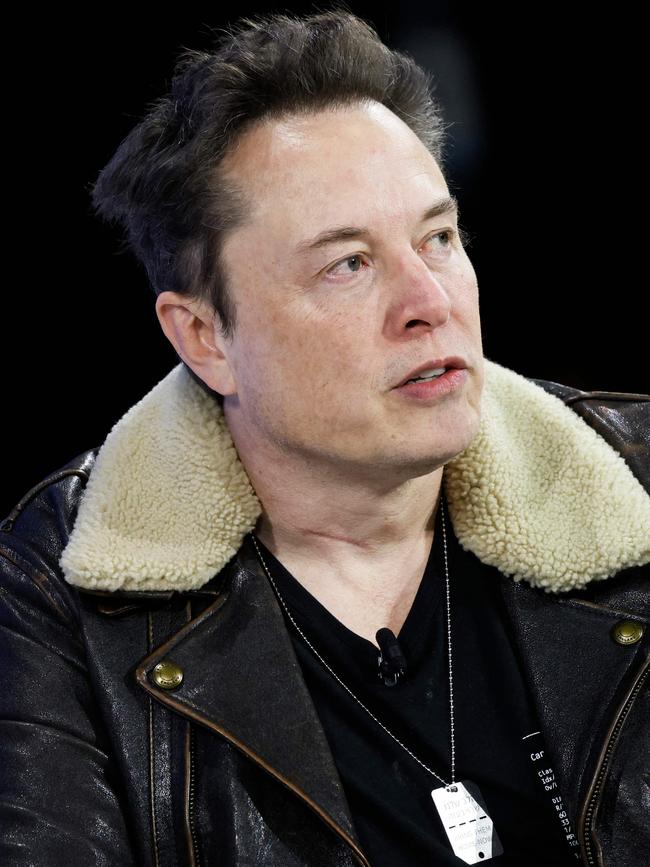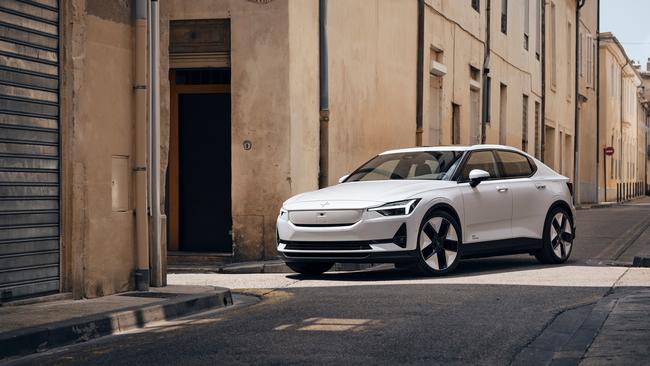CES Las Vegas 2024: Polestar CEO reveals plan to boost EV sales
The boss of the Swedish EV brand has called for more long-term thinking in making EVs more affordable and says Elon Musk’s controversies have not hurt sales.

Politicians need to adopt longer-term thinking around making electric vehicles more affordable, the chief executive of Polestar says, highlighting Norway’s successful renewable energy transition.
Thomas Ingenlath — who has helmed the Swedish EV brand since June 2017 — also said it would be “crazy” to force a capital raise at the company, which is yet to break even and lost $US304m ($451.6m) in the second quarter of 2023, until market conditions became more favourable.
In a wide-ranging interview on the sidelines of the world’s biggest consumer electronics show in Las Vegas, Mr Ingenlath said Elon Musk’s controversial behaviour wasn’t to blame for slowing EV sales, and said Australia and other countries should take lessons from Norway to spur growth.

Despite EV sales hitting a record last year – accounting for 7.2 per cent of all new cars sold in Australia – adoption continues to lag behind other developed countries. In Norway EVs make up about 80 per cent of new car sales.
Mr Ingenlath said Norway’s widespread take up of EVs was “no miracle”. Oslo began investing billions of dollars in North Sea oil royalties 40 years ago to fund its decarbonisation.
“It is indeed amazing to see … how they, of course, used what this country has as a natural resource and … invested it into the future,” he said.
“In actually unfavourable conditions – quite cold weather – they made it possible to change to a CO2 free future … much closer than a lot of other industrialised countries. But it shows us that actually, that is not a miracle how to do it. Actually, there are very simple measures that can do it.”
The federal government is seeking feedback to bolster its petroleum resource rent tax regime and further curb tax avoidance from the big gas companies. Mr Ingenlath said such measures could be used to make EVs cheaper, with Norway’s successful adoption based on tax breaks and other incentives.
“To drive a car as a combustion engine is not the smartest way of moving an object with a rotating wheel. A rotating wheel naturally likes to be driven by a rotating engine, and not by a piston – I mean, it is so much more complicated. You can feel it. It feels old.
“So I think that’s where sometimes technology needs that initial kickstart and then it gets us natural flow.
“But even in Europe and other parts of the world at the moment, politicians are making … I couldn’t even call it long-term, midterm oriented politics. It’s very short-term oriented. And of course that is not very helpful.”

Mr Ingenlath is not alone. Tech billionaire Mike Cannon-Brookes has also called for more EV incentives, saying there needed to more “doing” and less debating about encouraging greener choices.
“This means less time focused on shutting down coal stations, and more time on creating solar farms and batteries. It means less time telling Aussies to stop driving petrol cars – and more time creating standards that encourage and incentivise more EVs on our roads,” Mr Cannon-Brookes said.
The Australian government launched a national EV strategy last year to spur sales. But business groups warned the plan was on track to fail after government officials predicted fewer than a third of new car sales would be battery-operated by 2030.
The latest estimates from the federal transport department are that electric cars will make up 27 per cent of new car sales by 2030, well below the 89 per cent forecast in Labor’s pre-election modelling that helped boost its 43 per cent emissions reduction target.
Polestar said last November that it needed $US1.3bn in extra funding after it lost $304m in the second quarter of 2023. Its Chinese owner Geely Holding and Volvo Cars have provided the company additional liquidity.
Asked about the prospect of another capital raise, Mr Ingenlath said it depended on market conditions and the company’s target was to break even by 2025.
“We have said that from the very beginning that was our business model. And of course, the prerequisites were different three years ago than they are today, so we had to and we have and we will adjust accordingly in order to reach that goal,” he said.
“And when it comes to capital raise – as much as I would love our free float to grow, to have a stronger bigger community of owners – and if the market is not favourable for that it would be crazy to force it.”
Mr Ingenlath was not fazed about the antics of Elon Musk, co-founder and chief executive of Tesla – the world’s biggest maker of electric cars until it was overtaken by China’s BYD last quarter. Mr Musk has been engulfed in several controversies, including promoting an anti-Semitic conspiracy theory and failing to crack down on disinformation on his social media platform X about the conflict between Israel and Hamas.
But Mr Ingenlath said Tesla no longer defined EVs.
“Tesla and Elon Musk have had a very important, influential role in development of the electric car. Having said that … I think it’s not defining anymore that image of an electric car,” he said, adding that Tesla’s push into becoming more of a mass market brand had supported Polestar’s sales.
“It’s very clear that Polestar is for some people a nice alternative to Tesla because Tesla became too mass market. And for that reason, it’s a nice differentiator to choose the Polestar because it’s just simply not the car that you have seen already 10 times that day.
“For that reason, I mean, that is almost more important – what gives an opportunity to us – despite the special extrovert character of Elon.”
*The author travelled to Las Vegas as a guest of Hisense.






To join the conversation, please log in. Don't have an account? Register
Join the conversation, you are commenting as Logout